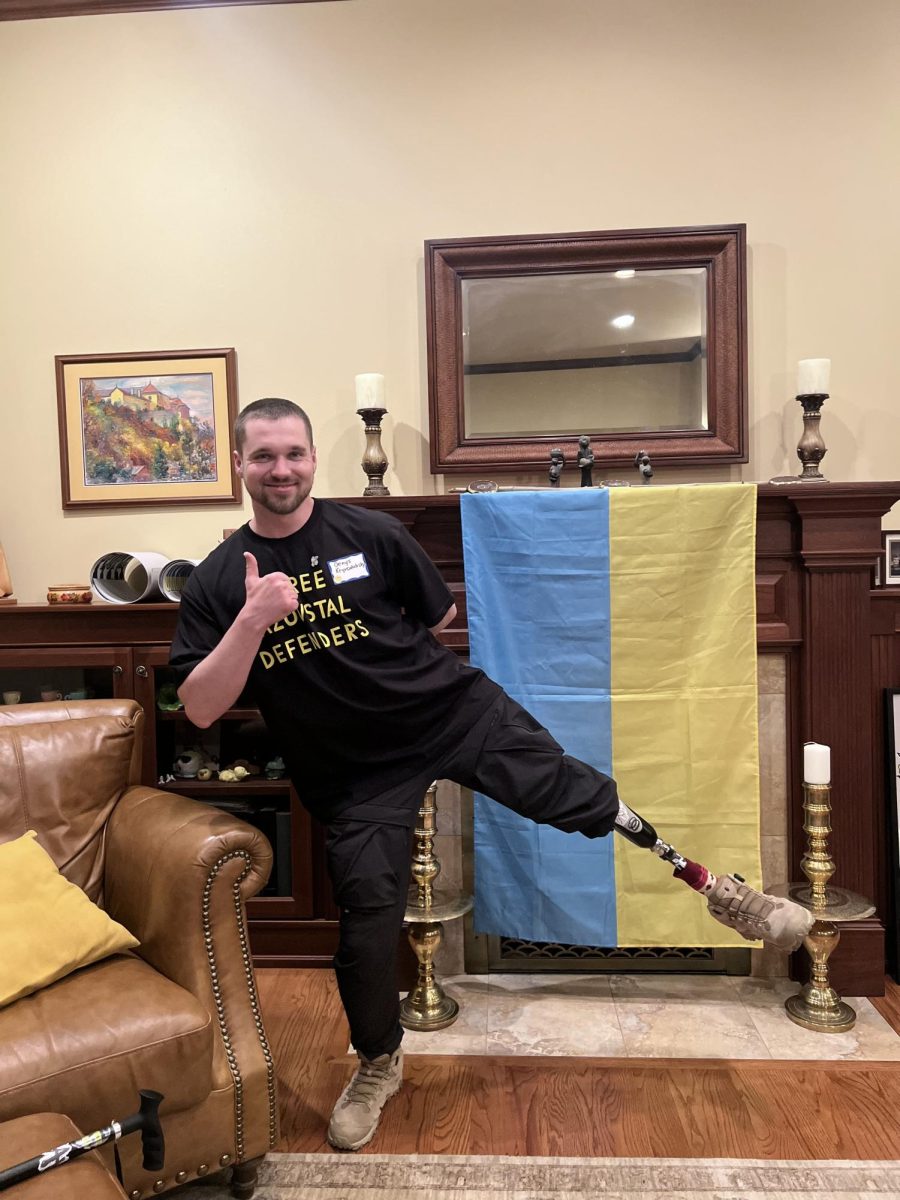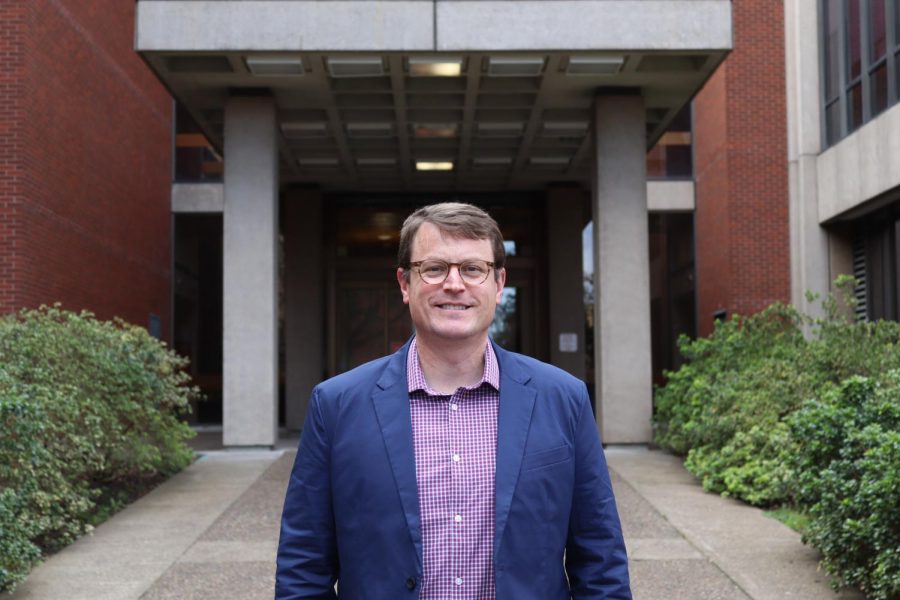International, undocumented students ineligible for CRRSAA financial aid program
March 19, 2021
Oregon State University has received federal assistance funding for students, but international, undocumented and DACA students are not eligible for these funds.
This funding was possible through the Coronavirus Response and Relief Supplemental Appropriations Act passed under the previous Trump administration and on average, students may receive anywhere from $500 to $2,000 in financial aid.
In the email sent to the OSU community on Feb. 22, Provost and Executive Vice President Edward Feser said that these funds may be used for any component of the cost of attendance or emergency costs that arise due to COVID-19, such as tuition, food, housing, health care (including mental health care) or childcare. Additionally, OSU would prioritize students with exceptional needs.
However, Feser also said federal regulations do not allow OSU to distribute CRSSAA federal funds to international students, Deferred Action for Childhood Arrival students and undocumented students, which are “also highly valued members of our community.”
According to Keith Raab, director of Financial Aid at OSU, the Department of Education said they believe that the law passed in 1996 called the “Personal Responsibility and Work Opportunity Reconciliation Act” applies to federally funded financial aid.
“That act states that it prohibits non-citizens from receiving federal public benefits,” Raab said. “When OSU signs the agreement with the federal government to administer these funds, part of that agreement says that we will comply with all provisions, regulations and applicable acts.”
Due to the PRWOR act, Feser recommended that students not eligible for CRRSAA aid apply for assistance by contacting the Office of Financial Aid to attain institutional funds such as Beavers Care.
Although the Office of Financial Aid is open to all students, Raab said that undocumented and DACA students typically don’t engage with systems like the Office of Financial Aid.
“They are often wary of talking to us and have concerns about engaging with official offices,” Raab said. “So they often don’t raise their hands and come to see what we can do for them.”
Cynthia Sanchez, a dream ambassador for Dreaming Beyond Borders Resource Center, said they have worked directly with Oregon Student Aid Application . ORSAA offers grants from within Oregon that DACA and undocumented students are eligible for. Essentially, it is similar to FAFSA, but at the state level.
“A good thing about ORSAA is that they learn to try and get to students,” Sanchez said. “Through ORSAA, they will also receive the Expected Family Contribution number.”
The EFC is crucial in many scholarships and grants as it helps let institutions and organizations, such as OSU know the individual economic needs of a student.
“The scholarship office has been doing a lot of good work, reviewing the criteria for internal scholarships and where not needed removing citizenship status requirements to make internal scholarships accessible to more folks, including undocumented students,” Sanchez said.
Meanwhile, international students also have issues with financial aid, although different from DACA and undocumented students.
“International students tend to work with the Office of International Services as opposed to the Office of Financial Aid because they are not eligible for the same types of aid as our domestic students are,” Raab said.
Jen Murphy, the international scholarship coordinator, said via email that the International Student Continuation Scholarship is one of the main scholarships that is available to give to current international students.
This scholarship can provide students with $2,500 per term and is based on three criteria: GPA, closeness to degree completion and financial need. Students interested in learning more about the opportunity and how to apply should email international.scholarships@oregonstate.edu.
“Due to the unprecedented impact of the current global pandemic, we are doing our best to help students when and how we can,” Murphy said.
Julianna Betjemann, director of student experience for INTO OSU, said via email that there are several ways that the OSU community can assist international students through the COVID-19 pandemic.
“As far as COVID-19, students are disappointed with the isolation and lack of contact with other students they are facing now. Some of them have come to the U.S. for the first time as a new student this year and of course found it very lonely,” Betjemann said. “If folks want to be extra kind and friendly, making small talk and asking people how they are doing and listening to the answers, engaging with them and showing care, I think that would really make someone’s day.”
Betjemann also said that there are options for volunteering with INTO OSU and helping the OSU international community, such as the International Friendship Program and with the Corvallis Multicultural Literacy Center.
Executive Director Office of International Services Grace Atebe said via email that cultural and language barriers remain a challenge for some international students and these have compounded the COVID-19 pandemic. Cultural and language barriers make relying on donations and food banks more challenging for these students.
Systems around the world were also shut down due to the pandemic. Atebe said these shut downs slowed down processes as people worked remotely or processes became more complicated to enhance security measures.
“It is therefore not entirely surprising that some students experienced delays in international transactions such as receiving their personal funding or funding for school related expenses,” Atebe said. “This naturally created some anxiety for some students.”
In terms of job opportunities, international students are eligible for work authorization — though there may be certain limitations depending on the type of student visa that they have on file. DACA students have work authority as well, both on and off-campus as they have a social security number.
However, Atebe said that work experience is another place where cultural differences may affect the quality of international students’ experience.
“Unlike in the U.S., employment opportunities for young adults (14 to18) is not too common in most places globally,” Atebe said. “College-age international students often may not have had prior employment which can be a disadvantage for some student employment opportunities on or off campus.”
Meanwhile, Sanchez said that undocumented students legally do not have work authority.
“But there are ways for them to receive financial compensations, internships in some cases, or fellowships or other opportunities on campus can be open to them,” Sanchez said. “It’s definitely a lot more limited for sure.”
At OSU, Dreaming Beyond Borders Resource Center works with different collaborators, such as with the Center for Diversity and Inclusion in the College of Engineering.
At OSU, we’re working with such partners across campus towards a “tuition remission.” Sanchez said that through this program, students can have professional development opportunities and in return, they can receive compensation towards their tuition account.
“All the pieces are still to be worked on and put together, but we are attempting to address these issues,” Sanchez said.
Raina Martinez, assistant director for admissions and scholarship for the Educational Opportunities Program, (EOP) is open to students that identify as 1st generation college student, low-income/Pell eligible or a student of color, including marginalized populations of students and students that are DACA or Undocumented.
Sanchez said that she has seen undocumented students who struggle with economic issues.
“Some people have to take a term off because they can’t afford to pay,” Sanchez said. “It’s really a ‘pay as you go’ process and there aren’t really loans for these students, although it may be easier for folks with DACA because they have social security numbers.”
Martinez said that there is a loan company that will allow an Undocumented student to take out a loan only if they have a co-signer that is a citizen.
“Co-signing is a big deal,” Martinez said. “It’s not really a good thing to put someone else in that situation. Students also have to ask themselves hard questions, such as ‘if I pay for tuition, can I get textbooks? Can I get food? Where will it come out from if I choose tuition?’ It can be particularly hard for students that don’t have financial aid.”
Sanchez said that she is glad that the CRRSAA funds help to support mixed status students as other bills in the past have left out this population of individuals.. Referring to the simple application form that CRRSAA has, Sanchez hopes that other opportunities can be as streamlined.
“Don’t burden students with more hoops to go through,” Sanchez said. “We need to find a way to make it so it’s truly equitable and not just as available, by simplifying and making it less time-consuming for students.”
David Trinidad, a graduate teaching assistant for Dreaming Beyond Borders Resource Center, hopes that the OSU community gets more educated about the population of DACA and undocumented students.
“it may be a smaller community at OSU, but it’s still a significant population,” Trinidad said. “What criteria can they change up in terms of certain scholarships to be more inclusive? There are certain resources and aid students can apply for, but they don’t feel comfortable applying too because of their status. That shows us that we still have work to do to make those students feel fully supported while also evaluating how we provide those resources and how we can make that a better system.”



















































































![Newspaper clipping from February 25, 1970 in the Daily Barometer showing an article written by Bob Allen, past Barometer Editor. This article was written to spotlight both the student body’s lack of participation with student government at the time in conjunction with their class representatives response. [It’s important to note ASOSU was not structured identically to today’s standards, likely having a president on behalf of each class work together as one entity as opposed to one president representing all classes.]](https://dailybaro.orangemedianetwork.com/wp-content/uploads/2025/03/Screenshot-2025-03-12-1.00.42-PM-e1741811160853.png)























